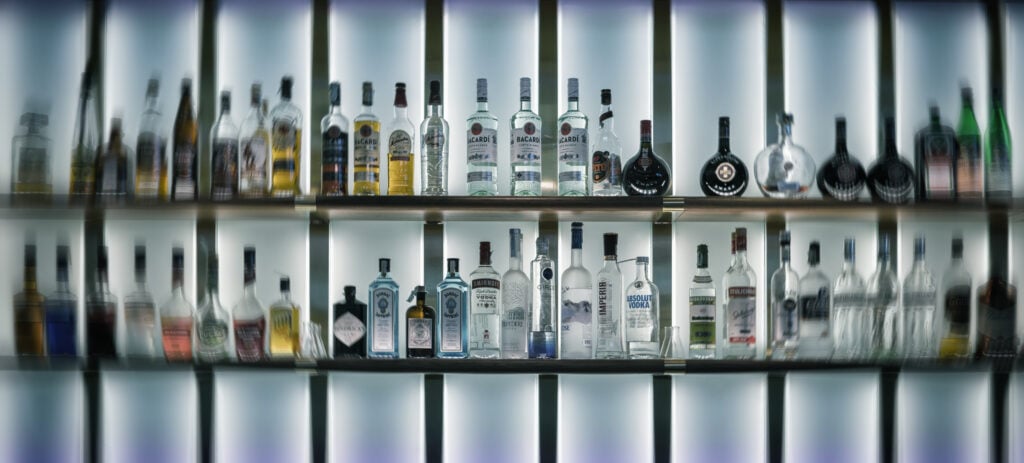5 signs it’s time to quit or cut back on drinking


I’m a licensed therapist who specializes in helping people change their drinking habits, and I took my last drink more than eight years ago. But I’ll let you in on a secret: I don’t care if you call yourself an alcoholic or not. I don’t care if you believe you meet criteria for an alcohol use disorder.


We get so obsessed with debating whether we have a problem or not that we don’t bother digging into the reasons behind why we drink. When we’re terrified of even the idea of alcoholism, we’re more likely to minimize our issues and rely on Google instead of getting help.
We search, “Am I an alcoholic?” and typically find comfort in discovering that we don’t meet all the criteria on a specific list or quiz. Whew! I dodged a bullet! No need to dig any deeper into my relationship with alcohol.
Drinking is all around us, all the time
Alcohol is so tightly woven into the fabric of our lives that most of us have never taken a moment to question it. We use it to bond, to connect, and to commemorate almost every major holiday, celebration, and gathering.
If someone says they don’t drink, others often assume that person is either an alcoholic or a social outcast because nobody in their right mind would voluntarily abstain from alcohol. It creates a stigma where unless people have a really good reason, turning down a drink becomes synonymous with admitting to a problem with alcohol.
And in our society, if you ask what an alcoholic is, the word usually conjures up the image of an older man who—after getting several DUIs and losing his job and perhaps his family—spends his days drinking out of a brown paper bag on the street. Is it any wonder so many people avoid truly looking at their relationship with alcohol?
The benefits of cutting back
Since abstinence is the dominant theory, we tend to believe that if we don’t look or act like a typical “alcoholic,” then there’s no point in exploring how we relate to alcohol.
However, drinking is not as black and white as it seems. You can enjoy a number of benefits if you reduce your alcohol intake, take a break from drinking, or think of ways to reduce the harm your drinking may be causing you. These benefits include:
- Better-quality sleep
- More energy
- Clearer skin
- No more hangovers
- Healthier relationships
- Less anxiety1
- Better able to manage stress
- Reduced risk of cancer2
- Increased confidence
Signs it may be time to quit or cut back
We often wait until we feel we have a big enough “problem” before getting curious about changing our behavior. When it comes to alcohol, many people think there are no benefits to cutting back or getting sober unless you’re an alcoholic. The truth is, we can still have an unhealthy relationship with alcohol even if it’s not causing serious issues in our lives.
Here are five reasons to consider cutting back on drinking or quitting altogether:
- Drinking is negatively impacting your sense of self-worth, harming important relationships, or preventing you from achieving your goals.
- Drinking is impairing your ability to make progress in therapy or meet your mental health goals.
- You’re a perfectionist and have extremely high expectations for yourself.
- You don’t always lose control when you drink—but when you do, there are significant consequences (such as losing friendships, fighting with important people, putting yourself or others at risk, putting your job at risk, or facing legal troubles).
- You struggle with other addictive behaviors (such as disordered eating, chronic dieting, overexercising, misusing drugs, shopping, gambling, working too much, or being codependent).
According to the National Institute on Alcohol Abuse and Alcoholism, 23.3% of American adults ages 18 and up admitted to binge drinking in 2021, and 6.4% reported heavy alcohol use (which can include bingeing).3 However, only 11.3% of adults in that age group were diagnosed with alcohol use disorder.4
Based on these numbers, it’s clear we’re leaving millions of people out of the conversation. We need to look at alcohol use on a wider spectrum. You deserve the opportunity to talk about or examine your drinking patterns without being stigmatized.
Start by checking in with yourself
If you’re not sure how to begin considering your relationship with alcohol, try asking yourself these questions:
- What does my relationship with alcohol look like?
- How often do I drink alcohol?
- How does alcohol positively impact my life? Are there any drawbacks?
- What is the relationship between alcohol and stress for me?
- What are my friends’ relationships like with alcohol?
- What are my family’s relationships like with alcohol?
- What is my partner’s relationship like with alcohol?
- Does alcohol play a role at my job? In what ways?
- How does alcohol impact my self-esteem?
Because alcohol is so tightly interwoven into our culture and there can be a lot of fear about judgment, it can feel scary to start exploring your own drinking habits.
I want to remind you that your relationship with alcohol doesn’t necessarily need to be all or nothing. You have the right to question it without making a grand promise to never drink again. Give yourself the space to be surprised by all the benefits sober curiosity has to offer.

Sources
1 https://www.ncbi.nlm.nih.gov/pmc/articles/PMC6927748/
2 https://www.ncbi.nlm.nih.gov/pmc/articles/PMC8470184/
3 https://www.niaaa.nih.gov/alcohols-effects-health/alcohol-topics/alcohol-facts-and-statistics/alcohol-use-united-states-age-groups-and-demographic-characteristics
4 https://www.niaaa.nih.gov/alcohols-effects-health/alcohol-topics/alcohol-facts-and-statistics/alcohol-use-disorder-aud-united-states-age-groups-and-demographic-characteristics
About the author
Amanda E. White, LPC, is a licensed therapist and the creator of the popular Instagram account @therapyforwomen. She is the author of “Not Drinking Tonight: A Guide to Creating a Sober Life You Love” (Hachette, 2022) and “Not Drinking Tonight: The Workbook” (PESI Publishing, 2023). She is the founder and owner of Therapy for Women Center, a Philadelphia-based group practice serving clients across the country. In her clinical work, she specializes in substance use disorders. She has been featured in Forbes, the Washington Post, Self, Shape, Women’s Health, and more.
Related articles

Are mocktails really safe for recovering addicts?
Nonalcoholic beer, wine, and mocktails seem to be everywhere all at once. But...

Alcohol use disorder (AUD) affects your mental, emotional, and physical...

